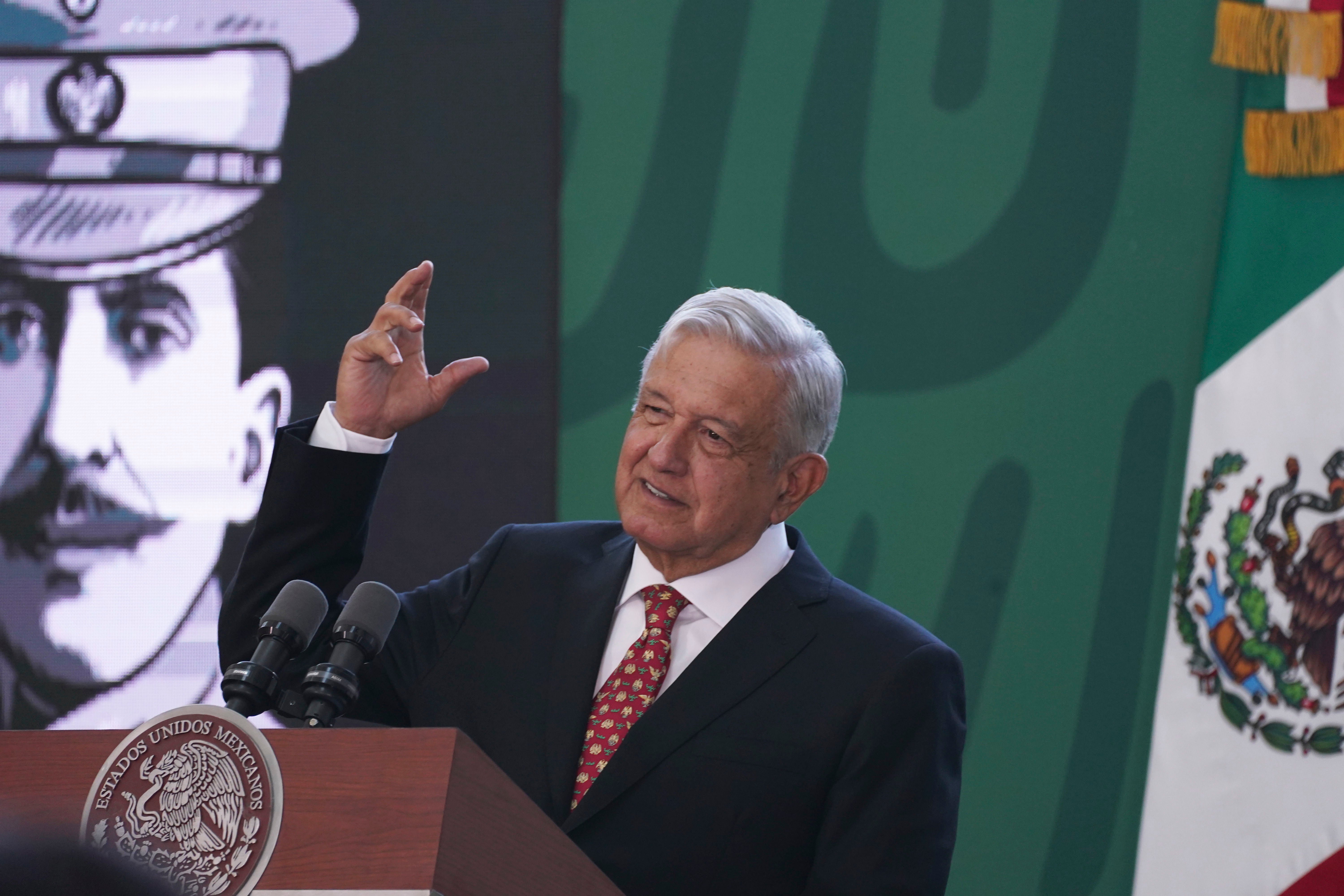Mexico, US meet amid electrical power dispute
Mexican and American officials met amid disagreements about an electrical power reform

Your support helps us to tell the story
From reproductive rights to climate change to Big Tech, The Independent is on the ground when the story is developing. Whether it's investigating the financials of Elon Musk's pro-Trump PAC or producing our latest documentary, 'The A Word', which shines a light on the American women fighting for reproductive rights, we know how important it is to parse out the facts from the messaging.
At such a critical moment in US history, we need reporters on the ground. Your donation allows us to keep sending journalists to speak to both sides of the story.
The Independent is trusted by Americans across the entire political spectrum. And unlike many other quality news outlets, we choose not to lock Americans out of our reporting and analysis with paywalls. We believe quality journalism should be available to everyone, paid for by those who can afford it.
Your support makes all the difference.Mexican and American officials met Thursday amid disagreements about an electrical power reform that seeks to limit foreign-built renewable energy plants and grant a majority market share to Mexico’s state-owned power utility.
President Andrés Manuel López Obrador met with U.S. Climate Envoy John Kerry, but the Mexican leader appeared unwilling to budge on the proposal, which is currently stuck in Mexico’s Congress.
“I think it was a friendly, necessary and beneficial meeting,” López Obrador wrote in his social media accounts.
While he didn't address the differences, López Obrador appeared to offer foreign firms a chance to invest in a scheme to build natural gas liquification plants in southern Mexico, to export LNG, presumably to Europe or Asia.
Mexico has to import gas — it doesn’t produce enough to meet its own needs, much less export — so the scheme would involve pumping U.S. natural gas to southern Mexico ports, chilling and liquifying it and loading it aboard ships.
“There are a lot of possibilities for investment,” López Obrador said before the meeting with Kerry. “We have excess gas due to purchases made through the gas pipelines” that handle U.S. gas. “We have land, we have seaports at Salina Cruz, Coatzacoalcos.”
López Obrador has vowed to press ahead with the changes to the electrical power industry, despite U.S. concerns that they could close off markets, choke off competition and possibly violate the U.S.-Mexico-Canada free trade pact.
On Thursday, U.S. Trade Representative Katherine Tai told U.S. senators that she was “deeply concerned with the legislative and regulatory developments in the Mexican energy industry that we have seen in recent months. My team and I at USTR, along with much of the U.S. government, have expressed these concerns regularly and directly to our counterparts in the Mexican government.”
Tai said energy companies and environmentalists “have been unified in expressing concerns with what is happening in Mexico, specifically with respect to the competitiveness of the North American energy market, as well as the competitiveness of Mexico’s own energy industry.”
The Mexican changes would favor a domestic company — the state-owned Federal Electricity Commission — over foreign electricity producers, something prohibited under the U.S.-Mexico-Canada free trade pact.
“I have informed Mexico and I assure you that we at USTR are looking at all available options under the USMCA to address these issues,” Tai said, “so that the USMCA can work for our stakeholders and protect our environment across all three countries."
Sen. Ron Wyden, a Democrat from Oregon, said Mexico is “considering laws to concentrate market power and regulatory authority in the hands of the state owned electric company. That result will mean a bigger focus on fossil fuels with limited opportunities for clean energy providers.”
“So Mexico’s new reforms are a one or two punch against environmental progress in America,” Wyden said. “Not only are they a setback in the fight against the climate crisis, but they are denying American companies companies in the Pacific Northwest, for example, a fair shake in the Mexican market.”
After meeting in February, Kerry expressed “significant concerns” over the bill, but López Obrador said the proposed changes “don’t affect the treaty at all.”
U.S. firms have complained bitterly about the constitutional changes proposed in October. They are still held up in the Mexican Congress, where they need a two-thirds majority that López Obrador hasn’t yet been able to pull together.
The changes would guarantee a majority market share for Mexico’s state-owned power plants that often burn dirty fuel oil or coal, while limiting private wind, natural gas and solar plants to a minority market share.
Many U.S. companies operating in Mexico either invested in cleaner power plants themselves or rely on cheaper energy produced by them.
But López Obrador’s affection for fossil fuels is also an underlying issue. He often waxes nostalgic about his youth in the oil-rich Gulf coast state of Tabasco and has boosted investment in oil refineries. Those refineries often produce dirty fuel oil as a byproduct, and it has to be burned at government power plants because few other buyers want it anymore.
The bill submitted in October would cancel contracts under which 34 private plants sell power into the national grid. The plan would also declare “illegal” an additional 239 private plants that sell energy directly to corporate clients in Mexico. Almost all of those plants are run with renewable energy sources or natural gas.
The measure also would cancel many long-term energy supply contracts and clean-energy preferential buying programs, often affecting foreign companies.
It puts private natural gas plants almost last in line — ahead of only government coal-fired plants — for rights to sell electricity into the grid, despite the fact they produce power about 24% more cheaply.